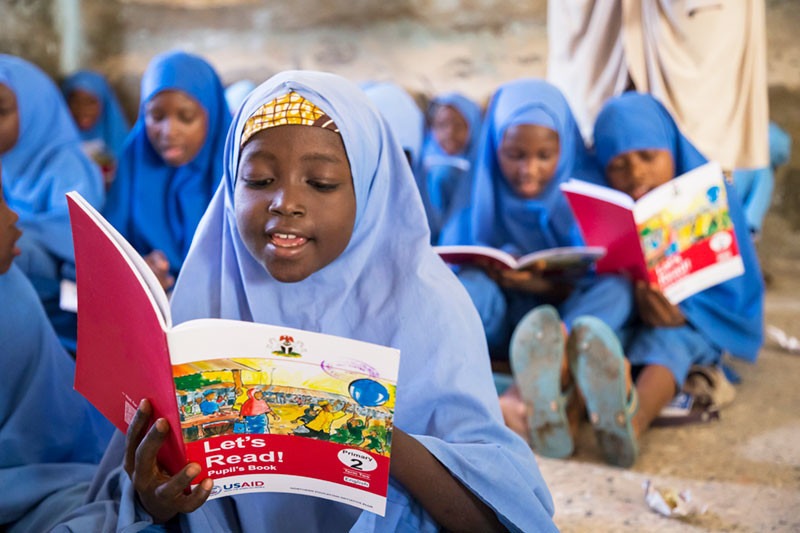Nigeria Education Crisis Response wins USAID Collaborating, Learning and Adapting competition
By Natalie LovenburgSeptember 14, 2017
The Nigeria Education Crisis Response project has been named one of 10 winners of the prestigious, third-annual 2017 Collaborating, Learning and Adapting Case Competition.
Presented by the U.S. Agency for International Development’s Learning Lab, the global competition honors real-life case studies of USAID staff and implementing partners for organizational learning and better development outcomes.
The USAID-funded Nigeria Education Crisis Response project is implemented by Creative Associates International, the International Rescue Committee, the Nigerian government and local non-governmental organizations.
Awarded for its use of multiple feedback loops to adapt programming in the volatile northeastern part of the country, the project focuses on expanding access to quality and relevant non-formal education opportunities for internally displaced and out-of-school children and youth ages 6 through 17.
“Applying real, collaborative and strategic solutions to development challenges is critical in any context, but even more so in a volatile environment like northeastern Nigeria.”
“We’re honored that USAID recognized the Nigeria Education Crisis Response project’s innovative efforts to meet the needs of vulnerable, displaced children and youth,” says Earl Gast, Senior Vice President and Senior Director of the Education for Development and Economic Growth Divisions at Creative.
“Applying real, collaborative and strategic solutions to development challenges is critical in any context, but even more so in a volatile environment like northeastern Nigeria,” he adds.
The regular feedback has been critical to ensuring timely evidence-based adaptations in education in conflict programming and stronger collaboration among everyone involved in the initiative, from the community level to the state government.
Ayo Oladini, Chief of Party, credits the success of the Nigeria Education Crisis Response project to the collaboration among USAID, communities, parents, partners and the staff.
“By integrating feedback loops through the Collaborating, Learning and Adapting approach, we are forming trusted relationships and empowering all key decision makers to have complete ownership of the project,” says Oladini.
The project was selected out of 100 case studies for its leveraging of USAID’s Collaborating, Learning and Adapting approach, a set of practices that help improve development effectiveness.
Improving responsiveness to beneficiaries
Leveraging the Collaborating, Learning and Adapting approach to improve programmatic success, the Nigeria Education Crisis Response project has mobilized and trained nearly four dozen non-governmental organizations to establish more than 900 non-formal learning centers for children displaced by the violence.
Feedback loops enable the project team to learn what practices are effective with these displaced learners and how the community is responding.

“The Collaborating, Learning and Adapting approach is powerful tool that helped the Nigeria Education Crisis Response project become more responsive to beneficiaries,” says Oladini.
In close and ongoing collaboration between the Nigerian government, project staff, civil society and local communities, the project has reached more than 88,000 internally displaced out-of-school children with basic literacy and numeracy skills and wraparound services like Social Emotional Learning support. It is active in five Nigeria states: Adamawa, Bauchi, Borno, Gombe and Yobe.
Through the Collaborating, Learning and Adapting approach, the Nigeria Education Crisis Response has succeeded in mobilizing community coalitions to troubleshoot local implementation challenges and improve the quality, delivery and inclusiveness of the non-formal education model.
The Collaborating, Learning and Adapting Case Competition winners will be honored at a USAID Learning Lab reception in Washington, D.C., on October 19.

